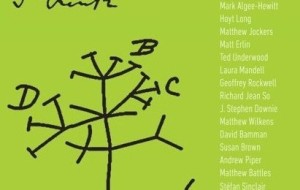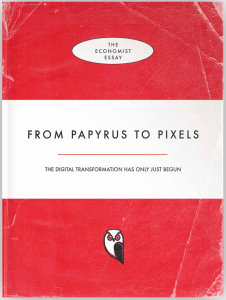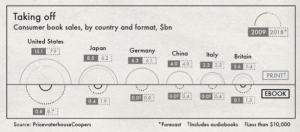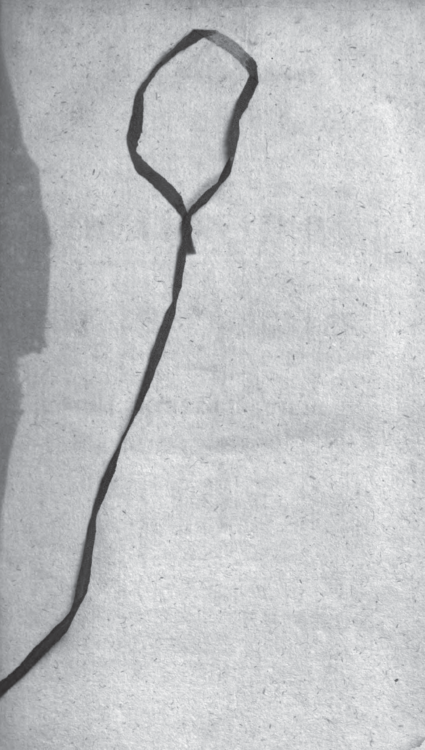Robert Darnton has a great essay in The New York Review of Books titled, A World Digital Library Is Coming True! This essay asks about publication and the public interest. He mentions how expensive some journals are getting and how that means that knowledge paid for by the public (through support for research) becomes inaccessible to the very same public which might benefit from the research.
In the US this trend has been counteracted by initiatives to legislate that publicly funded research be made available through some open access venue like PubMed Central. Needless to say lobbyists are fighting such mandates like the Fair Access to Science and Technology Research Act (FASTR).
Darnton concludes that “In the long run, journals can be sustained only through a transformation of the economic basis of academic publishing.” He argues for “flipping” the costs and charging processing fees to those who want to publish.
By creating open-access journals, a flipped system directly benefits the public. Anyone can consult the research free of charge online, and libraries are liberated from the spiraling costs of subscriptions. Of course, the publication expenses do not evaporate miraculously, but they are greatly reduced, especially for nonprofit journals, which do not need to satisfy shareholders. The processing fees, which can run to a thousand dollars or more, depending on the complexities of the text and the process of peer review, can be covered in various ways. They are often included in research grants to scientists, and they are increasingly financed by the author’s university or a group of universities.
While I agree on the need to focus on the public good, I worry that “flipping” will limit who gets published. In STEM fields where most research is funded one can build the cost of processing fees into the funding, but in the humanities where much research is not funded, many colleagues will have to pay out of pocket to get published. Darnton mentions how at Harvard (his institution) they have a program that subsidizes processing fees … they would, and therein lies the problem. Those at wealthy institutions will now have an advantage in that they can afford to publish in an environment where publishers need processing fees while those not subsidized (whether private scholars, alternative academics, or instructors) will have to decide if they really can afford to. Creating an economy where it is not the best ideas that get published but those of an elite caste is not a recipe for the public good.
I imagine Darnton recognizes the need for solutions other than processing fees and, in fact, he goes on to talk about the Digital Public Library of America and OpenEdition Books as initiatives that are making monographs available online for free.
I suspect that what will work in the humanities is finding funding for the editorial and publishing functions of journals as a whole rather than individual articles. We have a number of journals in the digital humanities like Digital Humanities Quarterly where the costs of editing and publishing are borne by individuals like Julian Flanders who have made it a labor of love, their universities that support them, and our scholarly association that provides technical support and some funding. DHQ doesn’t charge processing fees which means that all sorts of people who don’t have access to subsidies can be heard. It would be interesting to poll the authors published and see how many have access to processing fee subsidies. It is bad enough that our conferences are expensive to attend, lets not skew the published record.
Which brings me back to the public good. Darnton ends his essay writing about how the DPLA is networking all sorts of collections together. It is not just providing information as a good, but bringing together smaller collections from public libraries and universities. This is one of the possibilities of the internet – that distributed resources can be networked into greater goods rather than having to be centralized. The DPLA doesn’t need to be THE PUBLIC LIBRARY that replaces all libraries the way Amazon is pushing out book stores. The OpenEdition project goes further and offers infrastructure for publishing knowledge to keep costs down for everyone. A combination of centrally supported infrastructure that is used by editors that get local support (and credit) will make more of a difference than processing fees, be more equitable, and do more for public participation, which is a good too.




